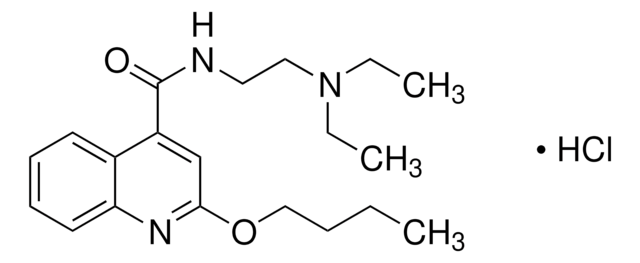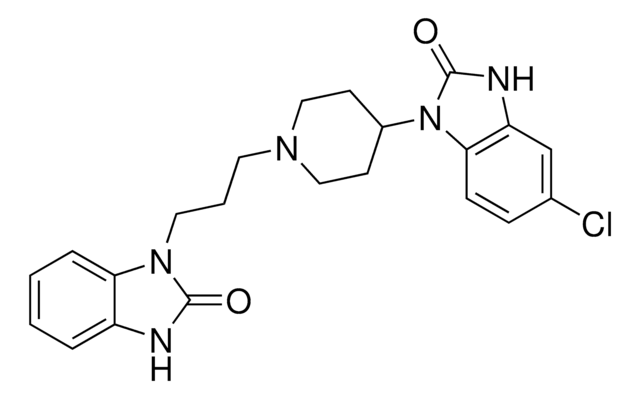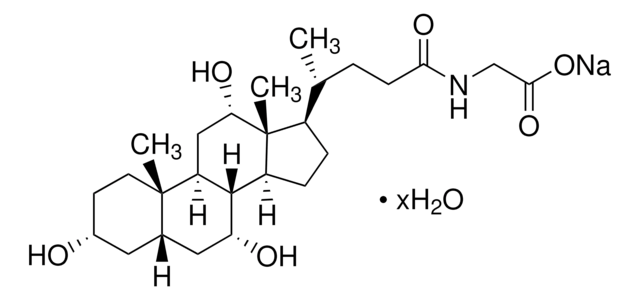D0638
Dibucaine hydrochloride
analytical standard, ≥99%
Synonym(s):
2-Butoxy-N-(2-diethylaminoethyl)-4-quinolinecarboxamide hydrochloride, Cinchocaine hydrochloride
Select a Size
Select a Size
About This Item
Recommended Products
grade
analytical standard
Quality Level
assay
≥99%
technique(s)
HPLC: suitable
gas chromatography (GC): suitable
mp
99-101 °C (lit.)
application(s)
forensics and toxicology
pharmaceutical (small molecule)
format
neat
SMILES string
Cl[H].CCCCOc1cc(C(=O)NCCN(CC)CC)c2ccccc2n1
InChI
1S/C20H29N3O2.ClH/c1-4-7-14-25-19-15-17(16-10-8-9-11-18(16)22-19)20(24)21-12-13-23(5-2)6-3;/h8-11,15H,4-7,12-14H2,1-3H3,(H,21,24);1H
InChI key
IVHBBMHQKZBJEU-UHFFFAOYSA-N
Looking for similar products? Visit Product Comparison Guide
General description
Application
Biochem/physiol Actions
Storage Class
11 - Combustible Solids
wgk_germany
WGK 3
flash_point_f
Not applicable
flash_point_c
Not applicable
ppe
dust mask type N95 (US), Eyeshields, Faceshields, Gloves
Choose from one of the most recent versions:
Already Own This Product?
Find documentation for the products that you have recently purchased in the Document Library.
Customers Also Viewed
Our team of scientists has experience in all areas of research including Life Science, Material Science, Chemical Synthesis, Chromatography, Analytical and many others.
Contact Technical Service









